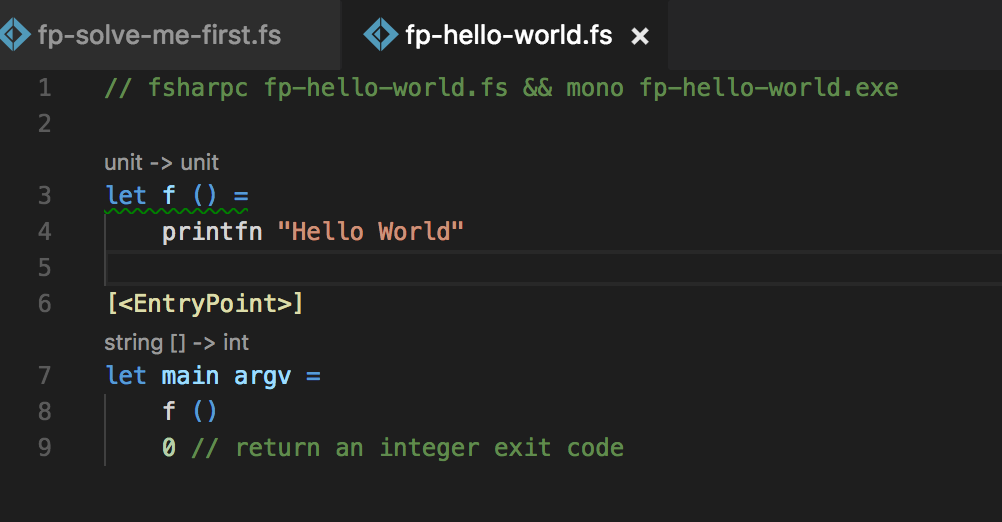


People could either buy specific databases of names of voters with specific profiles, or some of the candidates, like Bolsonaro, already had their database. It was actually very primitive, like a troll farm of people with dashboards sending thousands and thousands of messages to thousands and thousands of groups.
HELLO WORLD IN PUREBASIC SOFTWARE
What I found was that marketing agencies were actually providing mass messaging software that emulates WhatsApp. Some of it seemed very fast and very organized.Īt that time, WhatsApp was claiming that everything was organic and that there was no automation. One of the things I wanted to understand was how these groups were disseminating messages and growing so quickly. For example, in the last two weeks I was added to six different WhatsApp groups. Meaning you can be added to a group without agreeing to join it. These groups just kept growing and proliferating because administrators could add random numbers to them. Jumping forward to 2014 in India and 2016 in the U.S., there was this epiphany where we realized the harms of these new technologies.ĭuring the 2018 elections in Brazil, there were stories noting the huge number of WhatsApp groups that were sharing political disinformation.
HELLO WORLD IN PUREBASIC FULL
However, I had been covering elections around the world, and in 2008, when I covered the Obama campaign, I started doing stories about big data, and at the time everybody was so full of hope about the potential of big data. Can you talk about what you found?Ĭampos Mello: I was not a tech reporter. Our conversation, edited for brevity and clarity, is below.Īngwin: In 2018, you published an investigation about election disinformation circulating on WhatsApp in Brazil. She is also the author of the book “A Máquina do Ódio: Notas de Uma Repórter Sobre Fake News e Violência Digital” (Companhia das Letras, 2020), about populist disinformation campaigns in Brazil, India, and the U.S., as well as threats to freedom of the press in Brazil. In 2020, she was awarded the Ordre national du Mérite by French president Emmanuel Macron. She was awarded the Columbia University Maria Moors Cabot award in 2020, the International Press Freedom Award of the Committee to Protect Journalists (CPJ) in 2019, the Vladimir Herzog Special Award for Democracy and Justice in 2019, the International Committee of the Red Cross Prize for humanitarian journalism in 2017, the King of Spain Journalism Prize in 2018, and the Petrobras Prize (20). Mello has been a reporter for more than 25 years and has covered international relations, economics, and human rights.

Mello is an editor-at-large at Folha de S.Paulo newspaper and an associate research scholar at Columbia University, working on a project on electoral disinformation ahead of the Brazilian 2022 presidential election. To understand the Brazilian election landscape, this week I spoke with Patricia Campos Mello, a leading Brazilian journalist who has been tracking the elections and disinformation. ĭurigan said that WhatsApp has improved the artificial intelligence it uses to identify accounts that are sending out mass numbers of messages and has reduced the number of times users can forward a message from 20 to five.īut experts worry that such measures may not be enough to prevent a Brazilian replay of the “Stop the Steal” movement in the U.S., which culminated in a violent attempt to impede the transfer of power on Jan. “We learned a lot from 2018 and we are doing a lot more than we did back then,” Dario Durigan, head of public policy for WhatsApp in Brazil, recently told the Financial Times. This time around, the tech platforms are scrambling to assure the public that they will do better at curbing disinformation. A post-election analysis found that the vast majority of inaccurate information circulating on WhatsApp in the 2018 elections favored Bolsonaro. One analysis found that 56 percent of the most-shared political images on WhatsApp during the election period were misleading. At that time, voters were barraged with fake information through WhatsApp groups.
HELLO WORLD IN PUREBASIC TV
“We don’t want that to happen in Brazil,” he said in a recent TV interview.ĭisinformation was a key strategy in Bolsonaro’s 2018 presidential win. Bolsonaro, who is polling behind the leading candidate, Luiz Inácio Lula da Silva, has also questioned President Joe Biden’s election win. presidential election of 2020.Įven before voting has begun, the far-right incumbent, President Jair Bolsonaro, has already started talking about voting irregularities-raising concerns that he might not concede defeat should he lose. In October, Brazil will hold presidential elections that appear to be headed in the same contentious direction as the U.S.


 0 kommentar(er)
0 kommentar(er)
